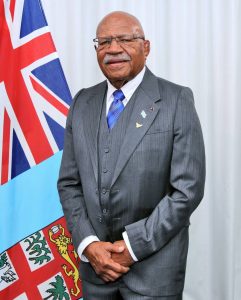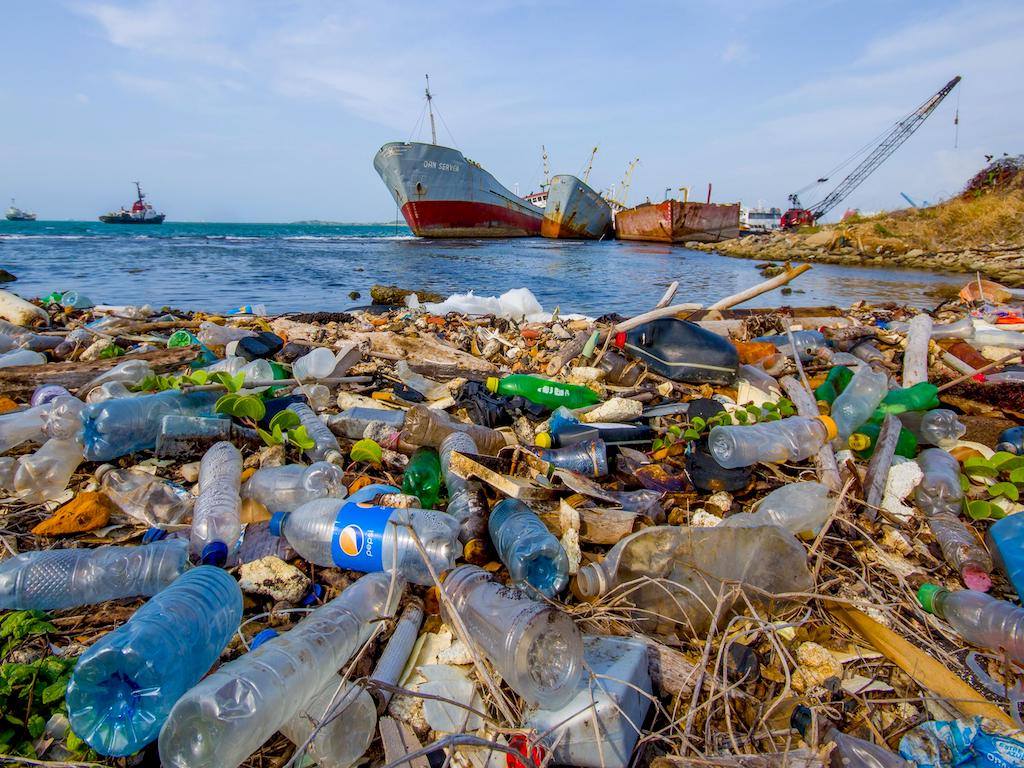Once a great invention for the service of humanity, plastics have become an enemy of civilisation.
That’s an observation of Fiji’s Prime Minister Sitiveni Rabuka to mark World Environment Day on Monday 05 June 2023.
In a one-page advertisement in the Fiji Times newspaper, titled, “A Ticking Time Bomb”, the Fijian leader called on all Fijians to take up the fight to protect their environment from plastic pollution.
“Everyone should be aware of this as we look around our homes at items made from plastic. These are quite helpful to us. It is what happens when we are finished with them that spells disaster.
“Many are disposed of in the normal way through municipal garbage collection services. However, we recognise there is an urgent need to improve on and extend systems of waste collection.
“The inadequacy in waste collection, however, does not fully explain why rubbish, including plastic, is often tossed out of bus and car windows and into mangroves, streams, river and the ocean.
“Large quantities are dumped randomly on the roadside and at beaches,” observed Rabuka.
In Fiji, he said the immediate consequences of littering is the clogging of drains and waterways leading to frequent flooding.

International research showed about 80 percent of throw-away plastic end up in the sea, eventually breaking down into tiny particles, or microplastic.
“This is particularly hazardous form of pollution, with a toxic effect on marine organisms and the sea creatures that ingest the fragment.”
Rabuka said a study found that 68 percent of fish in capital Suva coastal area contain microplastics.
“Sea creatures such as turtles and whales are also victims of larger masses of floating plastic. Turtles especially are often entangled or die when they mistake these for food. Whales become bloated after consuming plastic and also die.
“Seabirds kill themselves by feeding on plastic.
“What is not widely known is that microplastics not only find their way into what we eat. They also become part of the water we drink and even the air we breathe,” said Rabuka.
According to global statistics, more than 430 million tonnes of plastic are manufactured each year, one million plastic bottles are purchased every minute across the planet and up to five trillion plastic bags are used worldwide annually.
“Half of all plastic goes into products used just once and then thrown away as waste.
“It is an indictment of industry that much of the ocean plastic is from discarded fishing gear,” said PM Rabuka.
Rabuka commended efforts of Fiji-based Pacific Recycling Foundation (PRF) and Waste Recyclers Fiji Limited for their work in advocating about the plastic problem and other forms of waste.
“It’s encouraging that a number of schools are now part of the awareness campaign.
“The Fiji Hotel & Tourism Association deserves an accolade for its commitment to protection and preservation of the environment.
“I noted the association’s call for accessible and specialised recycling centre throughout Fiji to better manage plastic waste.”
The Fijian leader reiterated his government’s support for a legally binding global treaty to address and resolve the plastic crisis.
“We must work as one […] to break our addiction to plastics, champion zero waste, and build a truly circular economy.”
Ahead of #WorldEnvironmentDay, @antonioguterres calls for all hands on deck to #BeatPlasticPollution & shape a sustainable future for all. pic.twitter.com/sLKfEmirMN
— UN Environment Programme (@UNEP) June 4, 2023
SOURCE: PASIFIKA ENVIRONEWS/PACNEWS














